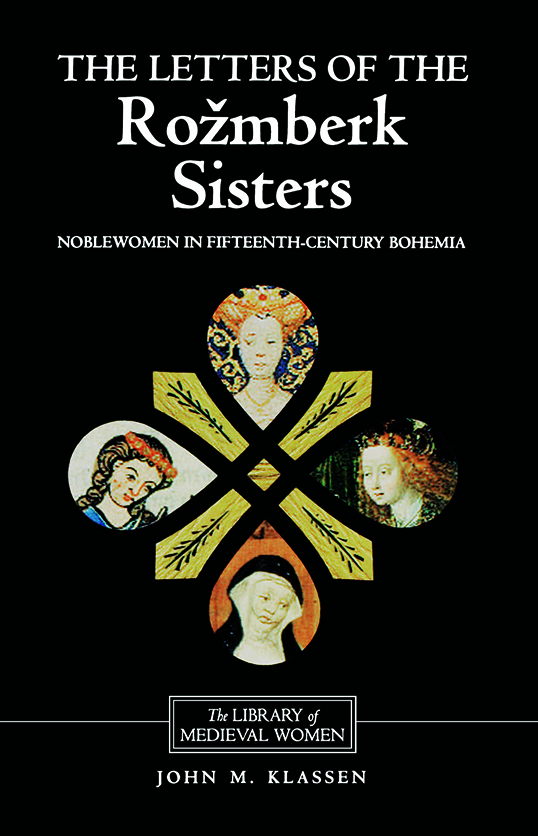Interpretive Essay
Published online by Cambridge University Press: 22 March 2023
Summary
The letters of the Rožmberk sisters are above all important for the light they shed on the lives of two self-assured noblewomen. The more abundant letters of Perchta illustrate sharply how she coped with unhappiness within a social and cultural context which required females to devalue themselves and submit their wills to those of males. At first glance Perchta appears ineffective and her letters reveal a society and a culture in which women basically have no power whatsoever. Power can, however, be seen as something that comes and goes in a person’s life, and as something even the weakest of people possess. Perchta’s letters show that she had the ability to mobilize people around her and to persuade them to act on her behalf and thus change the circumstances of her life. Her power was based on a strategy in which she carefully observed the limits that her status as a wife placed on her. At the same time she knew herself as a person born into a proud aristocratic family, and this gave her confidence to claim her rights as a human being. Important to the success of her strategy was her close bond with her father and brothers to whom she addressed her letters, as well as her relationship to her more distant kin and her servants.
Perchta, like other medieval women, experienced the dissonance of being a medieval woman. She had to accept a definition of herself as inferior by birth. Medieval women who wanted to be effective accepted a lesser status as part of their strategy to influence events. They consented to a social position defined as inferior, but proceeded to act as persons who shared or participated in a common humanity with males. The social, political, and cultural arbiters of the time defined women as not capable of being educated, unable to interpret theological texts, unworthy to lead in the church’s liturgical exercises, and not competent to conduct war and govern society. As Luce Irigaray expresses it, there was only one sex that spoke, one sex that made the laws. But medieval women also had a sense of self-respect, whether learned or innate. As a result they struggled with a certain discord in understanding their status.
- Type
- Chapter
- Information
- The Letters of the Rozmberk SistersNoblewomen in Fifteenth-Century Bohemia, pp. 99 - 128Publisher: Boydell & BrewerPrint publication year: 2001



